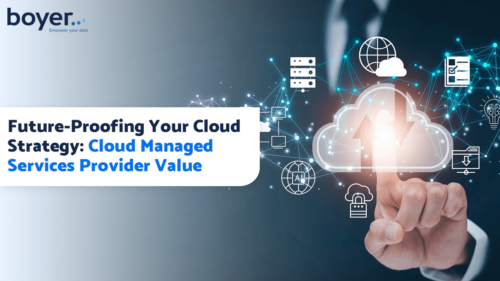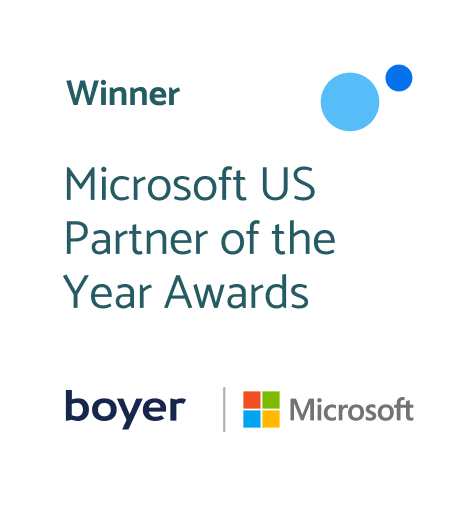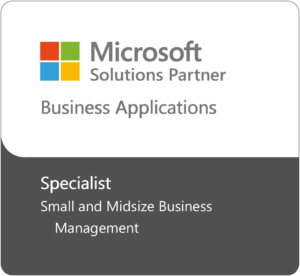A cloud managed services provider (MSP) is becoming increasingly important for businesses. It helps to ensure their cloud computing needs are met now and in the future as part of a successful digital transformation strategy.
We are here to help you understand what cloud MSPs do and why they’re becoming an essential part of modern business strategies. The need for a cloud MSP cannot be overlooked, especially when it comes to administering and improving cloud services.
What are some key considerations when selecting a cloud MSP backed by case studies highlighting successful partnerships? Read on to find out as we shed light on emerging trends in cloud managed services. Learn how to stay ahead of the curve while future-proofing your cloud strategy with a reliable cloud managed services provider.
The Importance of Cloud Services in Modern Business Practices
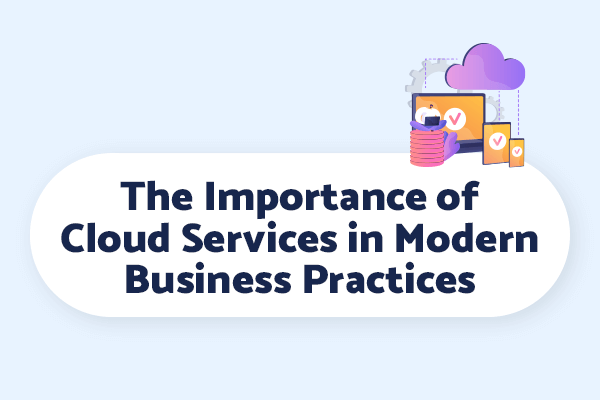
Cloud services are essential for companies to remain competitive in the digital era. Having the option to access data and apps remotely has drastically changed how businesses function.
Future-Proofing Your Business with Cloud Strategies
Staying ahead of the game necessitates leveraging scalable solutions and keeping up with cutting-edge technologies. This helps you anticipate future needs and adapt your infrastructure accordingly.
What Is Future-Proofing in Software?
Future-proofing software means designing it in a way that minimizes the risks associated with technological advancements. By adopting effective cloud strategies, organizations can ensure their systems remain relevant despite evolving trends.
An Enterprise Cloud Strategy: The 5 Basic Elements
Successfully transition your organization to the cloud to stay up-to-date and competitive in your industry.
1. Determining Business Objectives: Understanding what you want to achieve through cloud adoption helps guide decision-making processes.
2. Selecting Suitable Cloud Models: Depending on your specific needs, you might opt for public, private, or hybrid clouds.
3. Data Security & Compliance: Ensuring your data remains secure while meeting regulatory requirements is crucial.
4. Budget Planning: It’s important to factor in not just initial costs but also ongoing expenses related to maintenance, updates, etc.
5. Talent Management: Having skilled personnel who can manage your cloud environment effectively is key.
By implementing these five basic elements, you can create a solid cloud strategy that future-proofs your business and helps you stay ahead of the competition.
Understanding Cloud Managed Services Providers (MSPs)
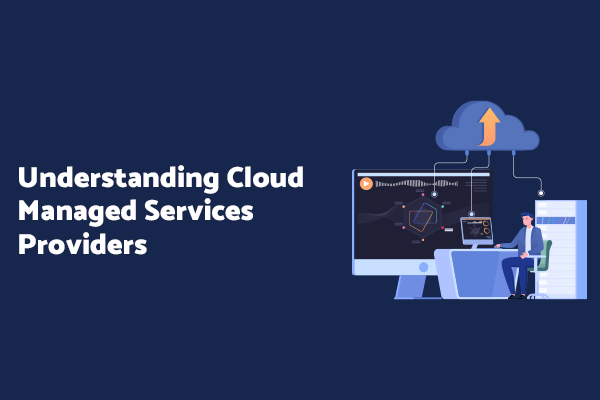
Businesses are turning to Microsoft business applications for operational needs, but managing and optimizing these cloud-based solutions can be complex. That’s where cloud managed services providers can help.
MSPs manage IT infrastructure on behalf of other businesses, specifically those hosted in the cloud. They offer key services such as network management, system administration, and cybersecurity protection — all crucial components for enhanced cloud performance.
Selecting the Right MSP
Choosing the right MSP can significantly improve your organization’s efficiency and security while reducing costs. Start by looking at their experience with Microsoft business software and applications like yours. Check out customer reviews to gauge satisfaction levels among previous clients.
What Makes a Good MSP?
A good MSP will have expertise in managing your specific type of infrastructure and understand your industry’s unique requirements and challenges. They should also provide comprehensive support, representing your company with Microsoft when you need fast solutions – because when it comes to technology issues, every minute counts.
Evaluating Potential Partners
Ensure compatibility with existing systems and future growth plans by considering factors such as a MSP’s scalability capabilities and flexibility in terms of service offerings. Assess potential partners based on their ability to meet agreed-upon service level agreements (SLAs).
The Importance of Cloud Managed Services Providers
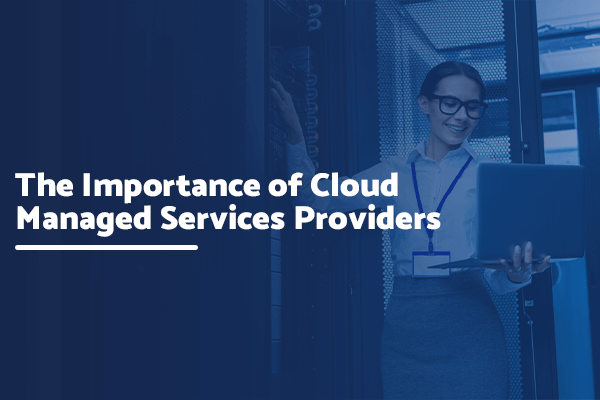
Given the rapid advancements in technology, self-managing cloud infrastructure can be an arduous task. Thus, cloud managed services providers are a beneficial solution. That’s where cloud managed services providers come in handy.
The Challenges of Managing Cloud Infrastructure Alone
Sustaining a productive, secure, and current cloud setup necessitates a noteworthy investment in resources and knowledge. From ensuring data security to optimizing performance, it’s no small feat. Furthermore, staying up-to-date with technological advancements adds another layer of complexity.
The Role of MSPs: Outsourcing Cloud Management
Outsourcing cloud management to MSPs offers several advantages over trying to handle everything internally. These professionals have specialized knowledge in handling various aspects related to the cloud, such as deployment, security measures, and disaster recovery planning.
This allows you to work more efficiently while enjoying peace of mind knowing you’re backed by industry experts who understand how to optimize your systems’ performance.
Benefits of MSPs
Hiring a partner who knows all about the software and its capabilities will only help you maximize your return on investment.
- Cost-effective
- Industry-specific support
- Expertise in cloud technology
- Scalability
By outsourcing cloud management to MSPs, businesses can focus on their core competencies while leaving the technical aspects to the experts. It’s a win-win situation.
Why Partnering with a Cloud MSP Is Valuable
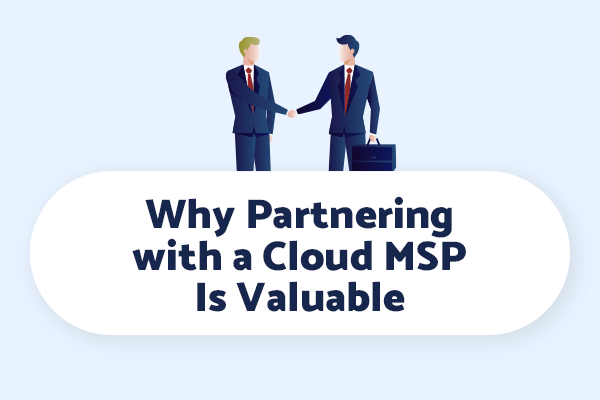
Teaming up with a cloud managed services provider can help you discover the full benefits of working with the Microsoft cloud. Here are some key advantages:
Enhanced Scalability and Flexibility
The Microsoft cloud offers scalable solutions that grow as your business does. It provides flexibility in managing workloads and data volumes without significant upfront investments or long-term commitments.
Expertise and Specialized Knowledge
A reputable MSP has expert knowledge of various cloud platforms, applications, security protocols, and compliance requirements. This specialized expertise helps businesses navigate the complexities of the cloud environment effectively.
Cost Savings and Optimized Resource Allocation
Outsourcing to a MSP can result in substantial cost savings by reducing capital expenditure on IT infrastructure. It also allows for optimized resource allocation by freeing up internal teams from routine maintenance tasks so they can focus on strategic initiatives.
Improved Security, Data Protection, and Compliance Measures
MSPs use Microsoft cloud’s safeguards to shield confidential information from cyber threats. They also ensure adherence to regulatory compliance standards, which is crucial for industries like healthcare or finance, where data privacy is paramount.
Choosing the right cloud MSP involves careful consideration of their experience level, reputation within the industry, and compatibility with your existing systems, among other factors.
At Boyer & Associates, our dedicated team is prepared to promptly discover the optimal software that suits your needs. This may encompass various interconnected elements within Microsoft’s extensive software offerings.
Key Considerations in Selecting a Cloud MSP
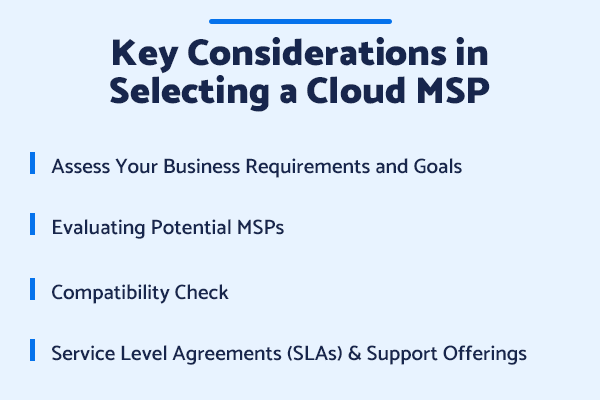
Choosing the right cloud managed services provider is crucial for your business. Determining the right cloud managed services provider is not just a matter of locating one. It’s also aligning with someone who comprehends your ambitions and can provide for your particular requirements.
Assess Your Business Requirements and Goals
The first step towards choosing a MSP involves understanding what you need from them. Do you require assistance with data management, security, or perhaps scalability? Identifying these requirements will help narrow down potential providers specializing in those areas.
Evaluating Potential MSPs
Analyze each prospective provider based on their experience, reputation, and customer reviews. Examine their years of experience, the kind of clients they have catered to (especially in your sector), and their overall performance.
Compatibility Check
Your chosen MSP should be compatible with your existing infrastructure and systems. They must understand how to work around what’s already there while making improvements where necessary without causing disruptions to operations.
Service Level Agreements (SLAs) & Support Offerings
A key aspect when selecting a MSP is examining its SLA closely. This agreement outlines everything from uptime guarantees to support response times — all critical factors for smooth cloud operations.
Case Studies: Success Stories of Cloud Managed Services Provider Partnerships
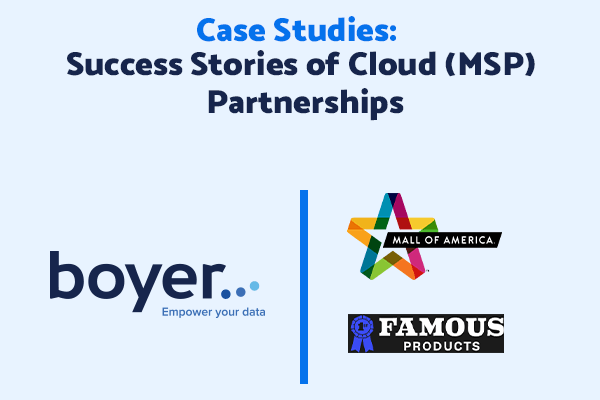
As businesses embrace cloud technology, many turn to cloud managed services providers for their specialized knowledge and expertise. To illustrate the advantages of such partnerships, let us consider a few success stories.
A Global Product Distribution Company Streamlines Operations with a MSP
Famous Products partnered with Boyer & Associates for inventory management across several warehouses. The partnership resulted in streamlined operations, improved scalability, and led to significant cost savings. Additionally, they have increased their customer reach, even selling their famous cornbread in South Korea.
A Retail Giant Enhances Their Employee Experience
The Mall of America partnered with Boyer & Associates to make operational improvements for easier training and better employee experience. With the implementation of Microsoft Dynamics 365 Business Central, the retail giant is set up for future growth and scalability.
These case studies show how partnering with cloud managed services providers like Boyer & Associates can offer businesses enhanced flexibility and control over their IT environments. You can also expect tangible benefits like cost savings and improved security measures.
Such collaborations can provide much-needed support as organizations navigate their digital transformation journeys.
Onboarding and Implementing with a Cloud Managed Services Provider
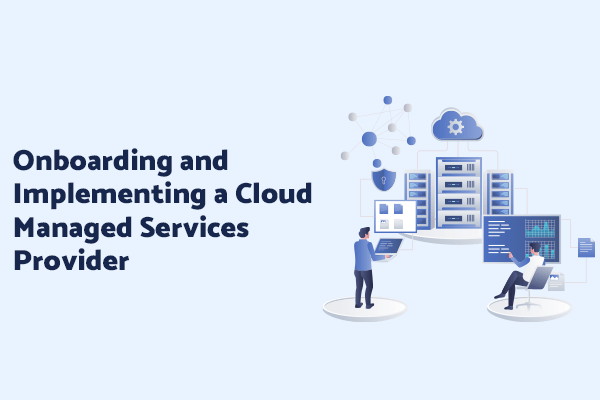
The transition to the cloud can feel overwhelming at first. When you have an expert team by your side, you can ensure that everything goes smoothly.
Transitioning to a Cloud MSP
As organizations increasingly adopt cloud computing, the need for effective management and maintenance of cloud infrastructure becomes paramount. Many businesses are turning to cloud managed services providers to leverage their expertise and resources for a seamless cloud experience.
As a Microsoft partner, our company ensures the utmost security for your data by housing it within the protected Microsoft cloud environment. Additionally, we have an exceptional track record in seamlessly transitioning clients’ systems to the Microsoft cloud.
Best Practices for a Smooth Onboarding Process
Leaving traditional and old business processes behind means training employees on new operations and making big changes. You can do it! It will only benefit your business in the long run.
Here are a few best practices:
1. Define clear objectives
2. Conduct a comprehensive assessment
3. Collaborate closely with the MSP
4. Develop a migration strategy
By following these best practices associated with onboarding and implementing a cloud MSP, organizations can maximize the benefits of cloud computing while minimizing potential disruptions.
A successful partnership with a cloud MSP can provide the necessary support and expertise to streamline operations, enhance security, and drive innovation in the cloud environment.
Future Trends in Cloud Managed Services
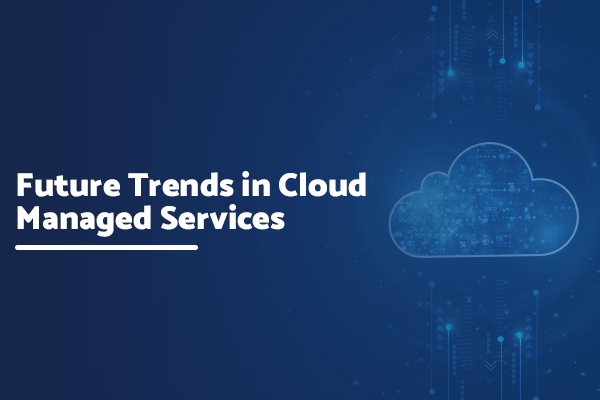
The cloud landscape is always changing, with new technologies playing a significant role. To stay ahead, businesses need to adapt their strategies. This is where partnering with a cloud managed services provider comes in handy.
Emerging Technologies Impacting the Cloud Landscape
Artificial Intelligence (AI), Machine Learning (ML), and automation are revolutionizing how businesses operate on the cloud. These advancements enable more efficient data processing, improved security measures, and enhanced customer experiences.
A competent MSP can help your business leverage these innovations for maximum benefit.
Predictions for The Future of Cloud MSPs
The future looks bright for cloud MSPs. As businesses increasingly migrate to the cloud, demand for expert management services will rise. Predicted trends include increased use of multi-cloud strategies, greater emphasis on security compliance due to stricter regulations, and further integration of AI and ML into service offerings.
Adapting To Future Needs With Ongoing Collaboration With MSPs
- Maintaining Agility: An agile approach allows organizations to quickly respond to market changes or technological advances. Your chosen MSP should be able to support this agility within your cloud operations.
- Innovation: Continuous innovation keeps you competitive in today’s fast-paced digital world. Look for a MSP that prioritizes staying at the forefront of technology trends so they can provide innovative solutions tailored specifically towards your business needs.
- Ongoing Support: The relationship between a company and its managed service provider shouldn’t end after implementation. Instead, it should involve ongoing collaboration to achieve long-term success through regular updates and optimizations based on changing requirements and industry standards.
Modernize Your Cloud Strategy with Help from a Trusted Cloud Managed Services Provider
Future-proof your cloud strategy with a cloud managed services provider to optimize your infrastructure and streamline operations for maximum efficiency and cost savings.
Partnering with a trusted MSP gives you access to expert guidance, support, and resources to stay ahead of emerging trends in cloud technology.
Whether you’re just starting or enhancing your existing cloud strategy, an experienced MSP ensures long-term success for your business.
Contact our experts at Boyer & Associates to handle your cloud strategy so you can focus on what you do best — running your business.
Read how Child Rescue Coalition used Microsoft’s cloud ERP solution for better reporting and insights into mission success.


